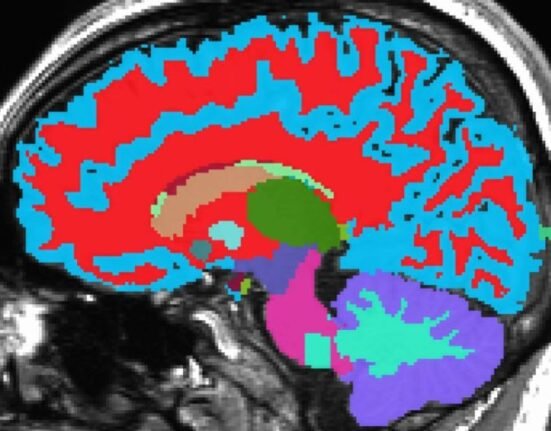Bharti Jayshankar
December 2, 2024: A recent study by University College London (UCL) has revealed that the decrease in brain volume observed in patients undergoing new immunotherapy treatments for Alzheimer’s disease may not indicate harm but rather the successful removal of amyloid plaques.
This research, published in Lancet Neurology, analyzed data from twelve different clinical trials targeting beta-amyloid proteins, which are known to accumulate abnormally in the brains of Alzheimer’s patients.Traditionally, a reduction in brain volume has been associated with neurodegeneration and cognitive decline. However, the UCL team found that the additional volume loss correlated with effective amyloid plaque reduction rather than neuronal damage.
Amyloid immunotherapy
“Amyloid immunotherapy has consistently shown an increase in brain volume loss—leading to concerns that these drugs could be causing unrecognized toxicity,” explained Nick Fox, a neurologist at UCL. He emphasized that the observed changes are likely a consequence of removing pathological amyloid plaques rather than tissue destruction.
The researchers coined the term “amyloid-removal-related pseudo-atrophy” (ARPA) to describe this phenomenon. They noted that while brain shrinkage is typically undesirable, their findings suggest that it may be an expected outcome of effective treatment.
The study indicates that the extent of volume loss was significantly lower than the volume occupied by amyloid plaques, which can constitute around 6% of the cortex in affected individuals.
Implications and caution
Despite these encouraging findings, Belder and his colleagues caution that further investigation is necessary to fully understand the implications of these volume changes on long-term patient outcomes.
“Given that some of these anti-amyloid treatments are now in clinical use and others are in or entering clinical trials, it is vital to understand whether these volume changes are a signal of harm,” the researchers warn.
“There are many unanswered questions, including the long term trajectory of volume changes. And, crucially, whether excess volume change after beta amyloid removal adversely influences long term outcomes.”
They call for improved reporting and evaluation of brain volume changes in ongoing clinical trials as these therapies become more widely used. As new anti-amyloid treatments like lecanemab gain traction—having recently received approval from regulatory bodies—understanding their effects on brain health remains critical.
This research was published in Lancet Neurology.








